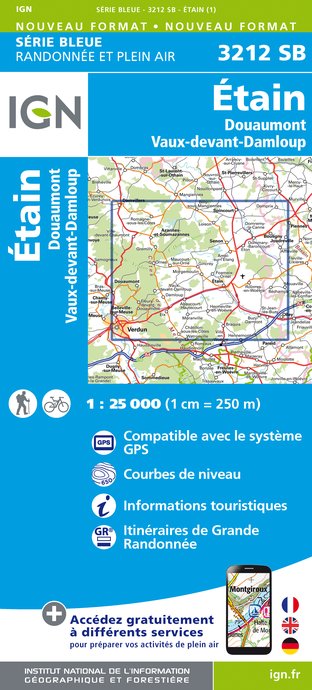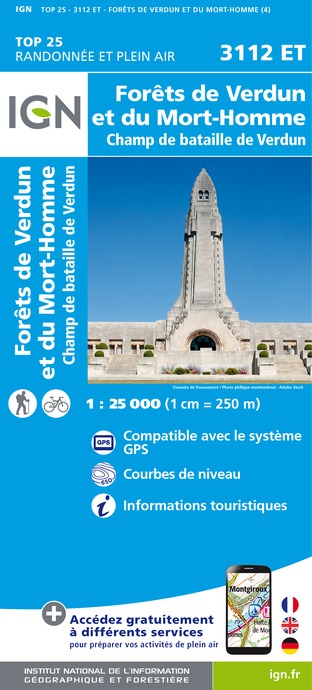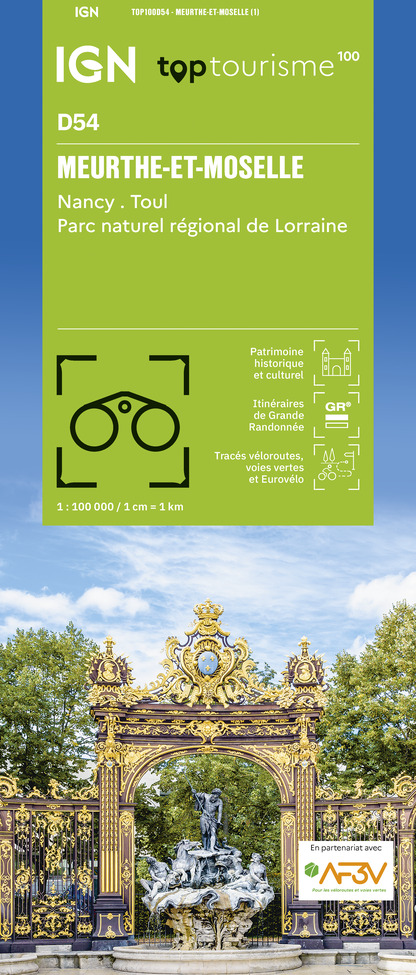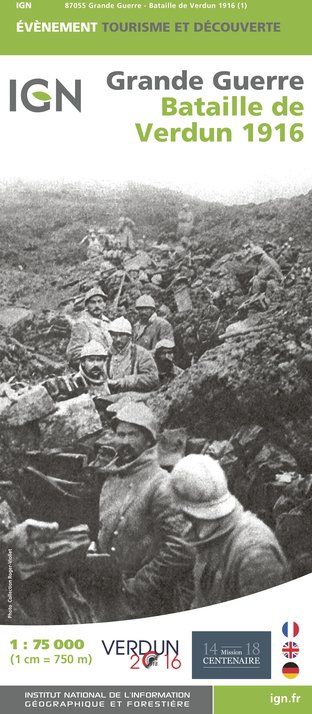Alert
Alerts
Fortified massif of Souville



Description
A major "first generation" fort built after the Franco-Prussian War of 1870-71, Souville only received concrete protection for its powder magazine, with the rest of the structure being masonry covered with earth, making it terribly vulnerable to large German shells. Although Souville never received Bourges Casemates for flanking fire, it was reinforced in 1890 with the installation of the prototype Bussières retractable turret, armed with two long 155 mm cannons. Unfortunately, the explosion of one of them in April 1916 meant that the turret served only as an observation and command post for the rest of the battle. While possession of the fort was crucial for the French, its capture would also allow the forces of the Crown Prince to take advantage of a final opportunity to advance unopposed into the city.
The center of Verdun. On the morning of July 11, the 3rd Company of the 7th Infantry Regiment, commanded by Second Lieutenant Dupuy, entered the fort and found the survivors of the garrison practically incapacitated. The arrival of fresh troops revived the spirits of those who had not been wounded, and the defenses were put back in order. On the slope outside the fort, other elements of the 7th Infantry Regiment gave way under the fierce assault of the Germans, but fortunately, the enemy did not make significant progress before being stopped by the machine guns of the 7th, firing from the roof of the fort. The next day, Souville remained under harassing fire from German artillery, but the crisis had passed and the defenders of Verdun were able to catch their breath.
Accessible by gravel paths, the fortified site of Souville today allows visitors to examine remnants such as the Batterie de l'Hôpital, the Pamart Casemates, and the roof of the fort, not to mention the unique Bussières turret.
More than just a fort, Souville corresponds to a true fortified massif comprising several elements:
Fort:
An organic garrison (2 infantry companies and 2 artillery sections)
Shelter-cave for 300 men
A retractable turret for two 155 mm cannons
A terraced fortress battery of 155 mm, located 100 meters from the retractable turret
Communication network via trenches.
Practical Information:
Pedestrian access to the fort
Entry into the fort is prohibited
Technical Information
Altimetric profile
Date and time
- From 01/01/2025 to 31/12/2025
Additional information
Producteur de la donnée
Ces informations sont issues de la plateforme SITLOR - Système d’Information Touristique - Lorraine
Elles sont synchronisées dans le cadre du partenariat entre Cirkwi, l’Agence régionale du Tourisme Grand Est et les membres du comité technique de Sitlor.
IGN cards










Data author
